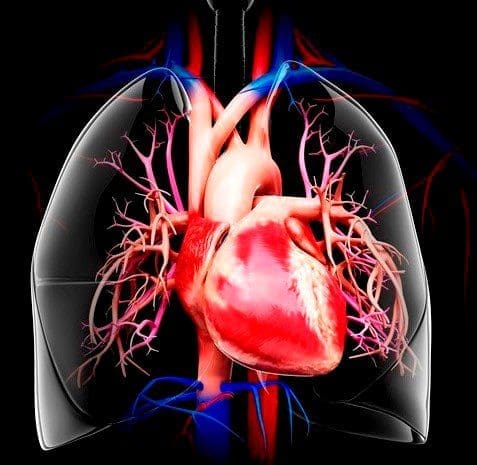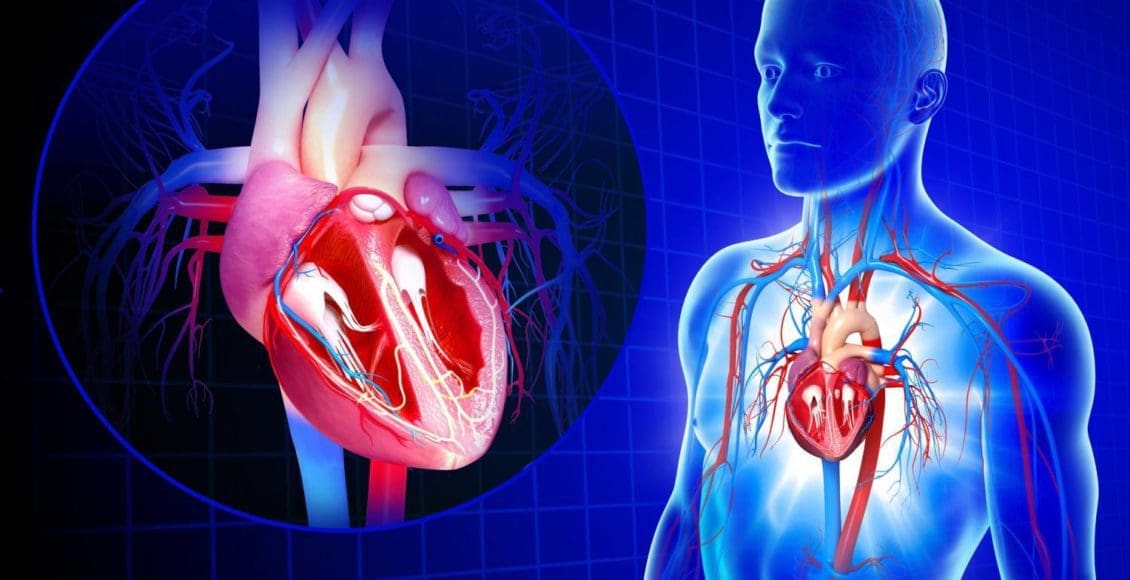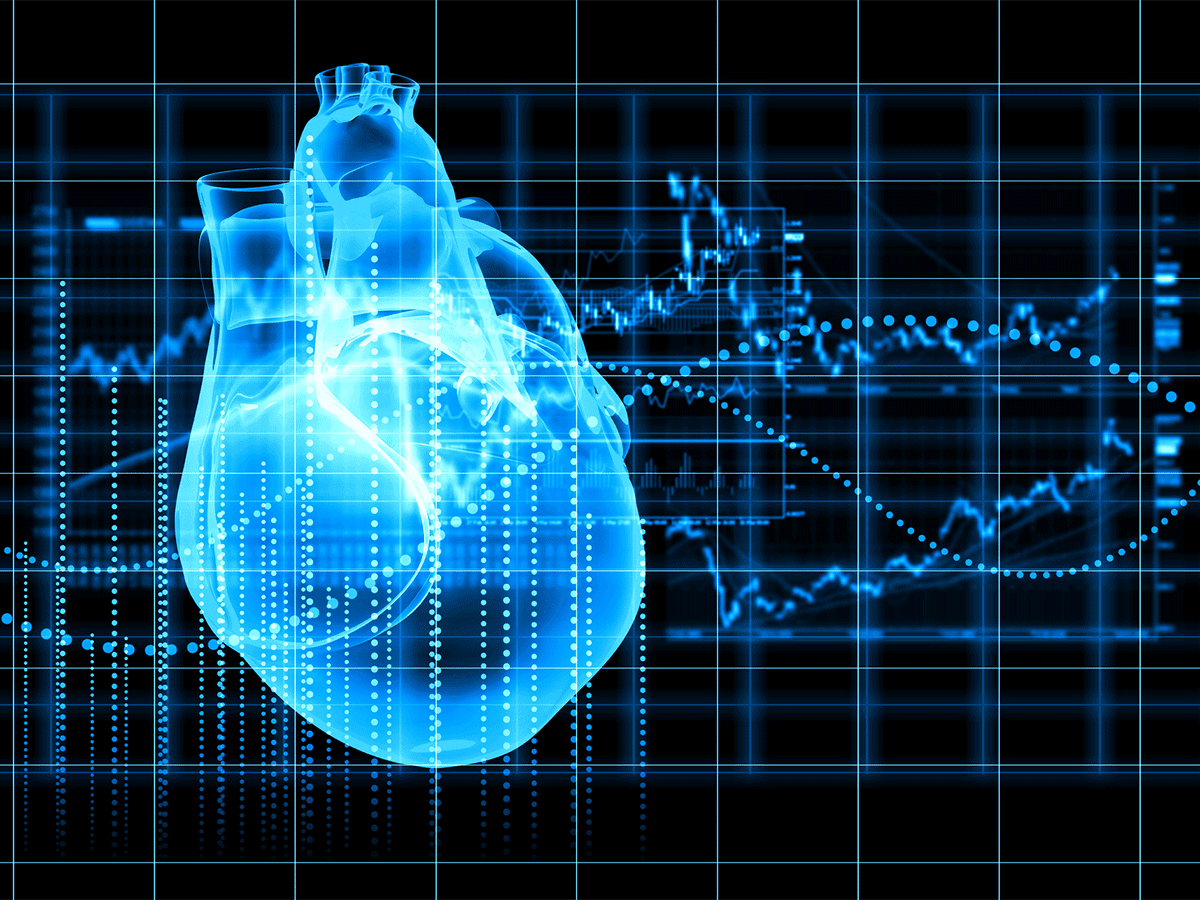Table of Contents
Introduction
The heart is part of the cardiovascular system that makes sure that the blood is being pumped through the arteries and going to each organ system and muscle tissue. The blood also carries oxygen, nutrients, and hormones to each of the different systems and makes sure that they are doing their job properly. When there are unwanted pathogens that enter the body and disrupt the cardiovascular system, it can cause the arteries and blood vessels to be damaged. These problems, if not treated, can develop into chronic illnesses like inflammation, high blood pressure, oxidative stress over time. In this 2 part series, we will be taking a look at the cardiovascular system and its functions, what is cardiovascular disease and how to prevent it. Part 1 took a look at what is the vascular system, its function, and discussed what vascular aging is. By referring patients to qualified and skilled providers who specialized in cardiovascular services. To that end, and when appropriate, we advise our patients to refer to our associated medical providers based on their examination. We find that education is the key to asking valuable questions to our providers. Dr. Jimenez DC provides this information as an educational service only. Disclaimer
Can my insurance cover it? Yes, in case you are uncertain here is the link to all the insurance providers we cover. If you have any questions, please call Dr. Jimenez at 915-850-0900.
What Is The Cardiovascular System?

The cardiovascular system is made up of the heart, blood vessels, and the blood itself in the body. Its main purpose is to transport the nutrients and oxygen-riched blood all over the body. Research shows that the cardiovascular system is responsible for different parts of the body and has two blood circulatory systems in the body that are responsible for the blood being transported throughout the body. The first system is the systemic circulatory system and this is the main system that transports blood to the organs and tissues throughout the body. The second system is the pulmonary circulatory system and this system helps move the blood between the heart and the lungs. The pulmonary circulatory system makes sure that oxygen is entering the blood cells while carbon dioxide is leaving the blood cells in the body.
Cardiovascular Function
One of the most important things the cardiovascular system does is that the blood continues to flow throughout the body. Research shows that the main function of the cardiovascular system is that it makes sure that the body receives oxygen, nutrients, and hormones from the respected organ system and gets rid of the unnecessary toxins out of the body. Another function that the cardiovascular system provides is a continuous blood flow day and night. So if the individual is either awake or asleep, the heart will continue to circulate the blood flow throughout the body. The cardiovascular system also helps the body gets the necessary nutrients so the organs can do their job and keep the body’s temperature at a normal level.
What Is Cardiovascular Disease?
Since the cardiovascular system is made up of the heart and blood vessels, when there are unwanted pathogens that start affecting the cardiovascular system, it can cause an abundance of problems. Research has found that cardiovascular disease can cause by physical inactivity, an unhealthy diet, oxidative stress, metabolic syndrome, and hypertension are some of the factors that can cause cardiovascular disease to the body. Cardiovascular diseases are related to increased oxidative stress and decreased oxidative defense in the body. Another study also found that cardiovascular diseases are a relative risk factor that is age-adjusted and can affect middle-aged adults all the way to older adults.
Cardiovascular Disease Symptoms
Depending on what type of cardiovascular disease a person has, the signs and symptoms can vary. Research shows that cardiovascular diseases can be different in both males and females as some of the symptoms include:
- Chest pains
- Chest tightness
- Shortness of breath
- Numbness on the legs or arms
- Angina
- Pain on the neck, jaw, or back
Cardiovascular Disease & Stress
Stress can affect the body’s response time and can trigger the body both externally or internally. Studies have found that when there is a physiological reaction to psychological stress it can act as a trigger for cardiac events. If the stress response turns chronic in the body it can cause cardiovascular diseases to progress even further into the body. Other studies have shown that if there is chronic stress in the body, it can actually worsen the health behaviors of the cardiovascular system and can cause a rise in chronic symptoms like inflammation, a rise of oxidative stressors, and can cause a person to have a heart attack without even them knowing it.
Preventing Cardiovascular Disease
All is not lost as there are ways to prevent cardiovascular disease from progressing further and to boost the heart’s health. Research studies have provided information that can help an individual boost their heart health but also make their body feels good. Some of the ways to boost the heart include:
- Don’t smoke tobacco
- Regularly exercise for about 30 minutes to an hour
- Eating a heart-healthy diet
- Maintain a healthy weight
- Good quality sleep
- Manage stress or meditate
- Regular checkups with the doctor
Conclusion
All in all, taking care of the cardiovascular system is important since the heart makes sure to pump blood to each of the organ systems and the muscle tissues. When there are chronic illnesses that can affect the heart, it can cause major problems to the body if it is not being taken care of immediately. By maintaining a healthy weight, lowering stress levels, eating nutritional food, and exercising regularly can lower the risk of heart diseases and the body can function normally.
References
Dimsdale, Joel E. “Psychological Stress and Cardiovascular Disease.” Journal of the American College of Cardiology, U.S. National Library of Medicine, 1 Apr. 2008, https://www.ncbi.nlm.nih.gov/pmc/articles/PMC2633295/.
Lopez, Edgardo Olvera, et al. “Cardiovascular Disease.” StatPearls [Internet]., U.S. National Library of Medicine, 11 Aug. 2021, https://www.ncbi.nlm.nih.gov/books/NBK535419/.
Medical Professionals, Cleveland Clinic. “Cardiovascular System: Overview, Anatomy and Function.” Cleveland Clinic, 13 Sept. 2021, https://my.clevelandclinic.org/health/body/21833-cardiovascular-system.
Medical Staff, Mayo Clinic. “Heart Disease.” Mayo Clinic, Mayo Foundation for Medical Education and Research, 9 Feb. 2021, https://www.mayoclinic.org/diseases-conditions/heart-disease/symptoms-causes/syc-20353118.
Medical Staff, Mayo Clinic. “Top Strategies to Prevent Heart Disease.” Mayo Clinic, Mayo Foundation for Medical Education and Research, 14 Jan. 2022, https://www.mayoclinic.org/diseases-conditions/heart-disease/in-depth/heart-disease-prevention/art-20046502.
Ruan, Ye, et al. “Cardiovascular Disease (CVD) and Associated Risk Factors among Older Adults in Six Low-and Middle-Income Countries: Results from Sage Wave 1.” BMC Public Health, BioMed Central, 20 June 2018, https://www.ncbi.nlm.nih.gov/pmc/articles/PMC6011508/.
Sherrell, Zia. “Cardiovascular System: Function, Organs, Diseases, and More.” Medical News Today, MediLexicon International, 29 July 2021, https://www.medicalnewstoday.com/articles/cardiovascular-system.
Steptoe, Andrew, and Mika Mika Kivimäki. “Stress and Cardiovascular Disease.” Nature Reviews. Cardiology, U.S. National Library of Medicine, 3 Apr. 2012, https://pubmed.ncbi.nlm.nih.gov/22473079/.
Disclaimer
Post Disclaimer
Professional Scope of Practice *
The information on this blog site is not intended to replace a one-on-one relationship with a qualified healthcare professional or licensed physician and is not medical advice. We encourage you to make healthcare decisions based on your research and partnership with a qualified healthcare professional.
Blog Information & Scope Discussions
Welcome to El Paso's Premier Wellness and Injury Care Clinic & Wellness Blog, where Dr. Alex Jimenez, DC, FNP-C, a board-certified Family Practice Nurse Practitioner (FNP-BC) and Chiropractor (DC), presents insights on how our team is dedicated to holistic healing and personalized care. Our practice aligns with evidence-based treatment protocols inspired by integrative medicine principles, similar to those found on this site and our family practice-based chiromed.com site, focusing on restoring health naturally for patients of all ages.
Our areas of chiropractic practice include Wellness & Nutrition, Chronic Pain, Personal Injury, Auto Accident Care, Work Injuries, Back Injury, Low Back Pain, Neck Pain, Migraine Headaches, Sports Injuries, Severe Sciatica, Scoliosis, Complex Herniated Discs, Fibromyalgia, Chronic Pain, Complex Injuries, Stress Management, Functional Medicine Treatments, and in-scope care protocols.
Our information scope is limited to chiropractic, musculoskeletal, physical medicine, wellness, contributing etiological viscerosomatic disturbances within clinical presentations, associated somato-visceral reflex clinical dynamics, subluxation complexes, sensitive health issues, and functional medicine articles, topics, and discussions.
We provide and present clinical collaboration with specialists from various disciplines. Each specialist is governed by their professional scope of practice and their jurisdiction of licensure. We use functional health & wellness protocols to treat and support care for the injuries or disorders of the musculoskeletal system.
Our videos, posts, topics, subjects, and insights cover clinical matters and issues that relate to and directly or indirectly support our clinical scope of practice.*
Our office has made a reasonable effort to provide supportive citations and has identified relevant research studies that support our posts. We provide copies of supporting research studies available to regulatory boards and the public upon request.
We understand that we cover matters that require an additional explanation of how they may assist in a particular care plan or treatment protocol; therefore, to discuss the subject matter above further, please feel free to ask Dr. Alex Jimenez, DC, APRN, FNP-BC, or contact us at 915-850-0900.
We are here to help you and your family.
Blessings
Dr. Alex Jimenez DC, MSACP, APRN, FNP-BC*, CCST, IFMCP, CFMP, ATN
email: coach@elpasofunctionalmedicine.com
Licensed as a Doctor of Chiropractic (DC) in Texas & New Mexico*
Texas DC License # TX5807
New Mexico DC License # NM-DC2182
Licensed as a Registered Nurse (RN*) in Texas & Multistate
Texas RN License # 1191402
ANCC FNP-BC: Board Certified Nurse Practitioner*
Compact Status: Multi-State License: Authorized to Practice in 40 States*
Graduate with Honors: ICHS: MSN-FNP (Family Nurse Practitioner Program)
Degree Granted. Master's in Family Practice MSN Diploma (Cum Laude)
Dr. Alex Jimenez, DC, APRN, FNP-BC*, CFMP, IFMCP, ATN, CCST
My Digital Business Card



